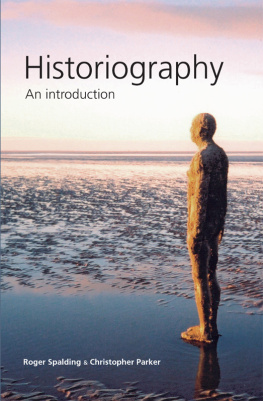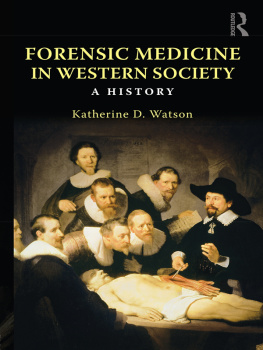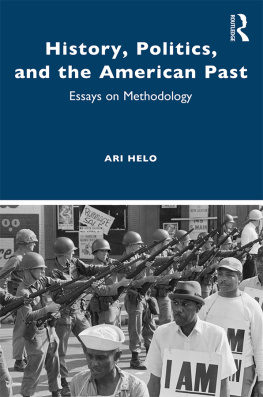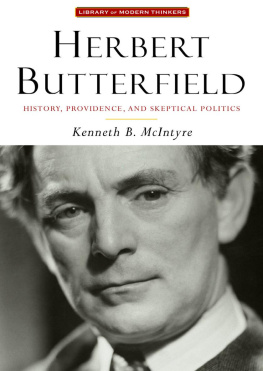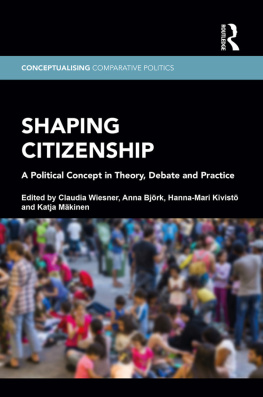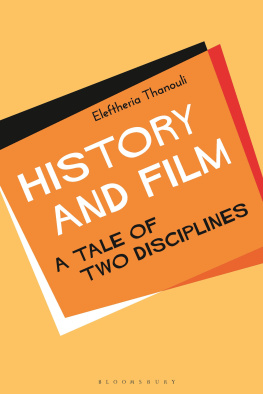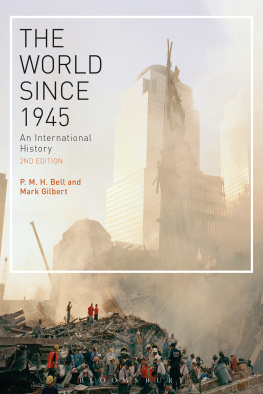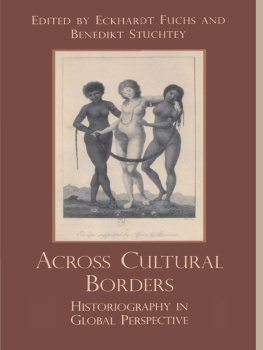Copyright Roger Spalding and Christopher Parker 2007
The right of Roger Spalding and Christopher Parker to be identified as the authors of
this work has been asserted by them in accordance with the Copyright, Designs and
Patents Act 1988.
Published by Manchester University Press
Oxford Road, Manchester M13 9NR, UK
and Room 400, 175 Fifth Avenue, New York, NY 10010, USA
www.manchesteruniversitypress.co.uk
Distributed exclusively in the USA by
Palgrave, 175 Fifth Avenue, New York,
NY 10010, USA
Distributed exclusively in Canada by
UBC Press, University of British Columbia, 2029 West Mall,
Vancouver, BC, Canada V6T 1Z2
British Library Cataloguing-in-Publication Data
A catalogue record for this book is available from the British Library
Library of Congress Cataloging-in-Publication Data applied for
ISBN 978 0 7190 7284 0 hardback
ISBN 978 0 7190 7285 7 paperback
First published 2007
16 15 14 13 12 11 10 09 08 07 10 9 8 7 6 5 4 3 2 1
Edited and typeset
by Frances Hackeson Freelance Publishing Services, Brinscall, Lancs
Printed in Great Britain
by CPI, Bath
1
Introduction: history and historiography
The purpose of this book is to facilitate the critical reading of works of history. We use the term history in at least two ways. It is the word often used to mean the past; and it also means that which is written about the past historiography or a description of the past. Not all descriptions of the past have to be presented in the form of the printed word, but whatever the medium, the point is that there is a distinction between the past and a description of it. This simple observation, however, is accompanied by a warning that the relationship between those two meanings is a difficult one. We said at least two ways and the variety of value-laden other uses of the term history should also send out warning signals. For example, people talk about something being a matter of historical record, suggesting an incontrovertible record of fact. Similarly, people accuse others of trying to re-write history, something historians do all the time, an accusation suggesting that there was a perfect match between the actual historical event and previous descriptions of it. Also we are often told that history will show or will judge, vindicating who or what was right and condemning what was wrong, which suggests both accuracy and objective judgement over the long term, when all the information is in and had been assessed, particularly, it is implied, in relation to a self-explanatory course of subsequent history; a popular phrase is the verdict of history. Trotsky was much given to talking about the judgement of history, and Roy Medvedevs critique of Stalinism was called Let History Judge. This also suggests that historical events or human actions are assessed in the light of long-term consequences, implying further that the historical narrative is a matter of causal relationships. The judgement may be exercised in terms of whether or not the actors correctly understood the supposed course of history or in terms of a moral judgement upon their motivation or the consequences of their actions; sometimes, and revealingly, no clear-cut distinction is made between the two.
However, another popular term is historic, designating something that is worthy of record, which suggests not only that some events or actions are more important than others, but that a principle of selection has to be applied. Should the terms historic and historical be used interchangeably? Perhaps an event considered historic for one generation might not retain its historical significance for later generations. Future generations may discern new significance in hitherto neglected matters, and then have to devise ways of rescuing them from obscurity. Depressingly for historians, the term history can also be used to consign events or people to irrelevance, to a dead past, as in youre history or that is now a matter of only historical significance. This suggests that we should move on from contemplating a dead past that no longer influences us, or at least free ourselves from the past. In contrast to things being of historic significance they now become mere history. These casual usages can often be matched to quite sophisticated philosophies of history and, most importantly for our present concerns, actual schools of historical practice. For example, the philosopher Michael Oakeshott thought that historians had legitimately created a form of historical experience that dealt with a dead past which was unlike the present and was the past for its own sake without practical application.
So we should not approach the study of historiography by assuming that our task is a simple one of separating wheat from chaff or, in the case of individual historians, sheep from goats, by checking who best matched their description of the past with the past itself. We could hold to that as an ideal objective, but its attainment is fraught with difficulties; and is an impossible, indeed a meaningless task according to a very vociferous and influential group of postmodernists. In one sense, we have only historiography, not the past itself, because the past, by definition, has gone. Most practising historians will immediately respond to that by saying that we still have, in the present, historical evidence, unmediated records, be they writing on paper or parchment, records of laws, wills or court proceedings, or artefacts dug up by archaeologists, field systems evident still in the landscape, or whatever. This is true, but they do not speak to us directly; they must be interpreted. Alone they are not history in either sense of the term: they are not the past itself either in the sense of a set of empirical facts that speak for themselves or in the romantic sense of the past speaking direct to our historical imagination. History in the historiographical sense is made by us, not by people in the past nor by the record of their actions. Contrary to another popular usage, history does not speak to us directly, even if the source is oral testimony.
We need, therefore, to study the historians who make history. But we cannot study individuals in isolation. There are ways of approaching the past, sometimes self-defining schools of historiography which themselves have a history, and we need to be aware of this. However, we need not be resigned to helpless relativism, merely locating an historian in a particular mind-set or a work of historiography in a particular period or country, and leaving it at that. Nor should we choose an interpretation according to our own prejudices or as a matter of taste which story we like best. Some historians are more conscientious researchers than others, more accurate, more learned and clearer in their arguments. Many deliberately set out to participate in a continuing debate, perhaps to support an ally or a mentor, or to challenge an opponent. There are established rivalries, even hostilities. Some, one suspects, are being deliberately provocative, perhaps to establish a reputation. In a sceptical postmodern climate these are no longer fashionable.

